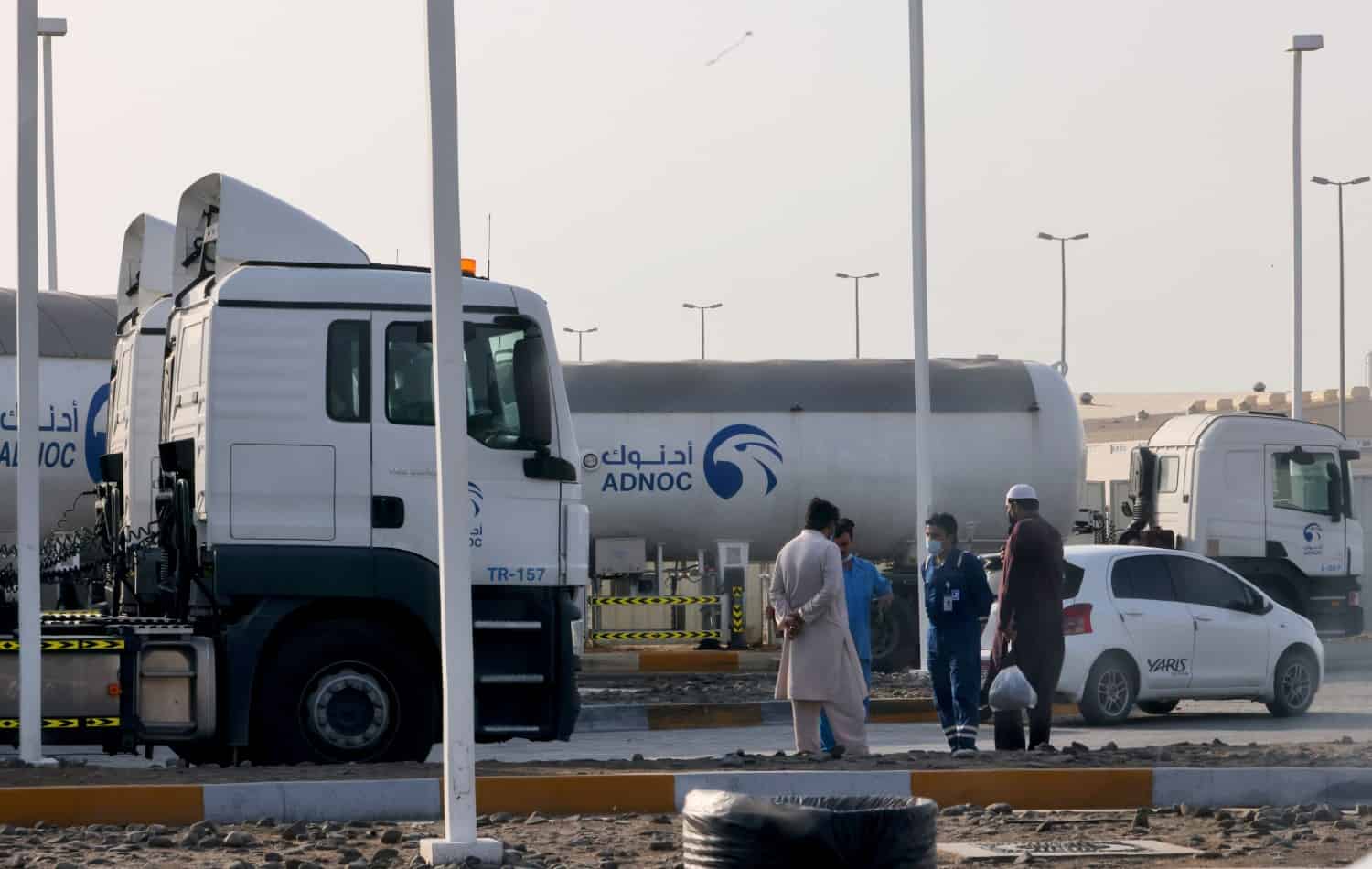Global inflation and financial crisis, combined with the Russia-Ukraine crisis and resulting sanctions have disrupted vital transportation links between Moscow and Kiev and the rest of the world, impacting trade in general.
According to a recent World Bank report ‘The Impact of the Ukraine War on Global Trade and Investment’, global trade will fall by one percent, dropping global GDP by slightly under one percent.
However, the impact of a potential global recession on the Middle East in the ‘adverse scenario’ would be moderate since oil and gas prices would stay high due to supply restrictions, even if demand dropped slightly.

According to Jean Claus, CEO of Allianz Trade Middle East, the global growth is entering a soft patch this year as uncertainty due to geopolitical risks remain high.
“We expect global GDP growth at +2.9 percent this year and +2.5 percent in 2023, down by -0.4pp and -0.3pp compared to our last forecast in March,” he said.
Claus told TRENDS that while a soft landing remains the baseline scenario for 2022, downside risks of a recession are building up. This time the concern is not only about the magnitude of the recession but also the distribution effects.
He summarized the global scene as follows:
As record high inflation (8.1 percent in 2022 at the global level) degrades real disposable incomes, households and corporates are likely to scale back consumption and investments, respectively.
Consumer sentiment is plunging, however business confidence is still holding up. But lower planned capex suggests that corporates are becoming more cautious.
Moreover, as inflation stays high for longer (4.7 percent in 2023 globally, above 3 percent in the US, Eurozone, UK), the risks of a wage-price loop are increasing.
A complete and disorderly suspension of oil and gas imports from Russia to the EU by year-end could bring about our ‘adverse’ scenario (40 percent probability), in which the major economies are pushed into a recession.
In this scenario, policymakers would fail to save the day à la 2020 as central banks’ initial fixation on fighting inflation constrains fiscal policy options.
Meanwhile, the expected policy U-turn in H1 2023, including aggressive rate cuts, would come too late.
Overall, taking into account the additional impact from tightening monetary and financial conditions, we expect global GDP growth would contract by -0.3 percent in 2023 in the adverse scenario (after slowing to +2.6 percent in 2022).
This implies a recession of -1.4 percent in the US and -2.5 percent in the Eurozone and the UK. China’s growth would slow to +2.5 percent in 2023. Hence, it can be said that the ‘fear of recession’ is rational.
On the other hand, we forecast regional GDP growth of +2.7 percent in 2023 in our ‘adverse scenario’, slightly lower than the +3.1 percent expected in the baseline scenario.
Will oil prices and supply chain issues affect regional trade?
Claus believes that the coming global recession is not the current baseline scenario. However, if a recession comes, oil prices would likely fall but not as much as in 2014 or 2020 because the overall supply is now lower with Russia partially cut off from global markets.
“GCC countries will probably suffer less,” he said, adding that present strong oil revenues are helping to create fiscal buffers against potential oil price drops.
Furthermore, economic diversity has become even more critical in constructing a barrier against recession.
GCC countries have accelerated reforms and initiatives to build non-oil economies, including zero-net-emission projects by 2050, funds to develop Arab talents and investments in mobility and technology to become start-up nations.
Trading with China
China has become the major export destination of GCC economies, particularly for oil and gas exports. For example, Saudi Arabia was China’s top supplier of crude oil in 2021.
On the other hand, China has also become the main source of imports for the GCC, especially finished products for consumption and investment.
According to Claus, global and Chinese port congestion are back to the worst levels in 2021.
The volume of container vessels anchored outside ports across the world has averaged 5.9 percent of annual throughput per month since March, vs. a monthly average of 5.5 percent in H2 2021.
To mitigate this effect, “Both the UAE’s and Saudi Arabia’s early positioning along the New Silk Road in line with China’s Belt and Road Initiative is now paying off,” said Claus.
Presently, the UAE and Saudi Arabia are expanding their port capacities in Dubai and Jeddah, respectively.
He expects it could take two to three months for port congestion to normalize.
This would imply a surge in goods trade around August or September, which are traditionally critical months as many sectors are preparing production and pilling up inventories ahead of the festive season at the end of the year.
Claus has also revealed that the agrifood, pharma, software & IT Services sectors in other countries are set to benefit the most from China’s reopening boost due to improved supply chains.
However, these sectors in the GCC are not major importers of intermediary products from China. Hence the impact of China’s reopening on the GCC via this channel will be small.
The oil and chemical sectors in the GCC, on the other hand, will benefit the most. It is as follows by country:
Saudi Arabia: Energy, chemicals
UAE: Energy, chemicals, automotive
Qatar: Energy, chemicals
Kuwait: Energy, chemicals
Oman: Energy, chemicals, metals
Bahrain: Chemicals, energy, metals, automotive








